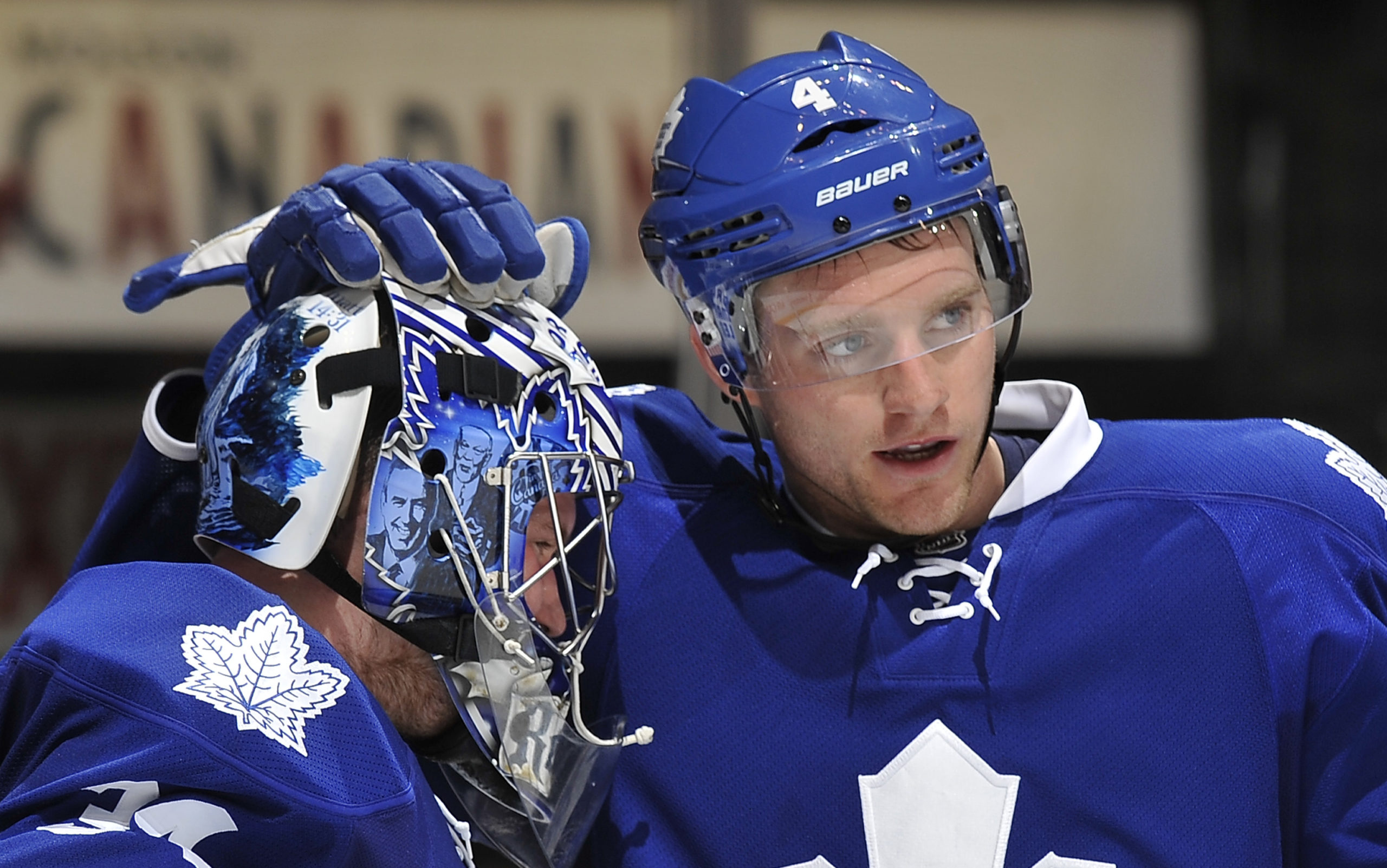Cody Franson and the Toronto Maple Leafs avoided salary arbitration yesterday by agreeing to a final-hour, one-year, $3.3 million pact. The question now is whether Franson will be a Leaf or donning another team’s sweater on opening night of the 2014-15 season.
Here’s both sides of the argument, as best I see it:
PROS:
– The most convincing argument for moving Franson: His value, as a UFA to be on July 1, 2015, is likely to to decline by the game unless he has a really big season or something unforeseen. If the Leafs don’t think they can get a deal done with him based on their dealings with him in the past, it’s as good of a time as any to move him.
– The Leafs have brought a couple of right-handers into the organization in Robidas and Polak, and rightie Petter Granberg appears to be ready to make the jump.
– They have three good powerplay point options outside of Franson in Phaneuf, Rielly and Gardiner, and we all know Kessel runs that first PP unit beyond any shadow of a doubt. Franson’s uncanny ability to put through point shots is a nice asset, but the Leafs’ powerplay probably survives and still succeeds without it. It’s worth mentioning that, during the season-crippling slump, the powerplay also dipped, and the Franson-Phaneuf pairing gave up a couple of shorthanded goals and way too many shorthanded scoring chances against, although the clear solution there was to split them up and pair them off each with a mobile puck mover, of which the Leafs had two young talented specimens.
– Franson struggled to stay above water in his 5v5 second-pair duties, and even his even-strength point production was far from overwhelming. Whether or not Franson has the foot speed to shut down second-line forwards across the League is a big question mark.
– The Leafs have watched some pretty good assets walk out of this organization for nothing in recent summers, and cashing in on Franson while he still has a full season under contract at a pretty good cap figure would make sense and might be a little bit refreshing as far as the club’s asset management goes (note: it’s not good asset management, however, if they trade a decent defenceman for a poor return).
CONS:
– While Franson’s thoughts on the contract announcement — suggesting he was happy to have struck a deal avoiding arbitration — were to be expected, he certainly didn’t have to volunteer that he “wants to be in Toronto for a long time.” The contract disputes of years past has led to the natural inference that there isn’t a great relationship between the club and the player — and by extension the thinking that he would definitely walk next summer — but that might not be the case, at least to the extent some of us have imagined. It is a distinct possibility that Franson took a little less money to avoid the ugly arbitration process, which as an action speaks just as loudly as those aforementioned words.
– The old Brian Burke adage about needing 10 NHL-ready defencemen seems rather idealistic, but it speaks to a self-evident truth about the need for depth on the blueline. If we assume Granberg is going to get an opportunity, having Franson gives the Leafs a solid group of 7 plus a few “could bes” off the Marlies like Percy and MacWilliam. That’s decent depth. Remember, for all their misfortune in terms of injuries at center, the Leafs got really fortunate when it came to the health of their regular blueliners last season.
– We could get into a discussion here about Dion Phaneuf playing on his left versus his right, a change which Franson’s presence come the Fall might necessitate, but the main point about depth is to have options throughout a long 82-game grind. Don’t just jettison a quality asset because the logistics of lefties vs. righties might not make sense on paper in July.
– Robidas and Polak are regarded as strong own-zone guys and are right handed; quite simply, the Leafs made a bet last season that Franson would be able to step seamlessly into a second pair role/top 4 minutes, but it didn’t just happen without some pretty big bumps in the road. No one really knows for sure how the pairings will shake down, but there should be less pressure to deploy Franson as a top 4 guy on the right side now that the team has more options there. If Franson and Gardiner find the top form they’ve shown in spurts together, great; there’s the second pair. If not, Franson does not have to be relied upon so much at 5v5 if he doesn’t earn the trust.
Conclusion: I’ve said all of this to essentially arrive at the diplomatic, classically Dave Nonis answer of “deal this asset if the price makes sense, but don’t deal him just because.” You’re welcome.




































